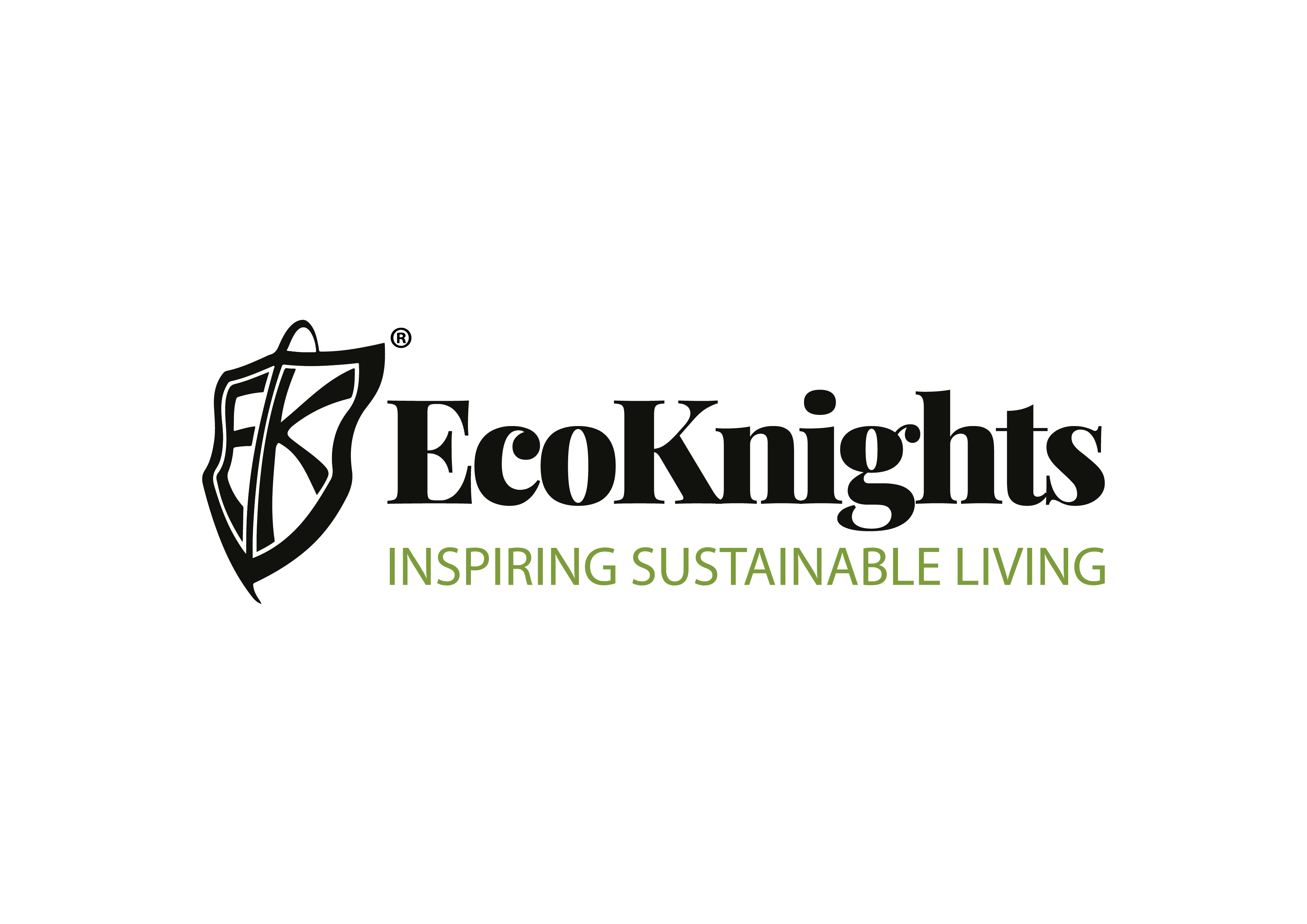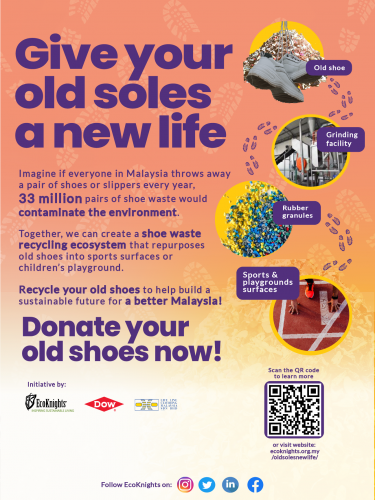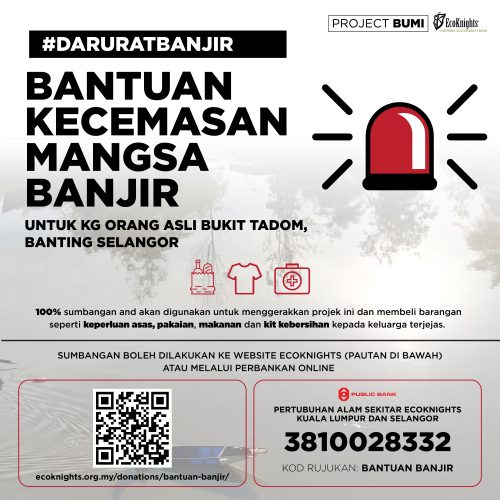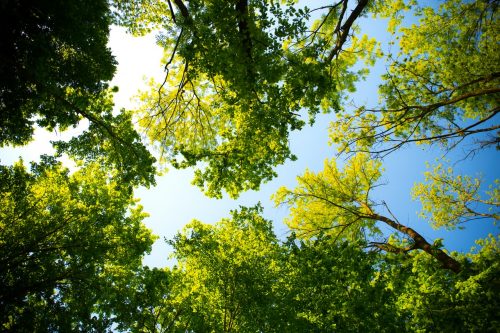Gamuda Parks and EcoKnights: Teaming Up for a Thrilling Series of Nature-Theme Programme This Year!
- EcoKnights
- April 4, 2023
- 2:24 pm
Written by Annisa Shabrina, edited by Shahirah Anuar
Building a strong foundation for young children’s connection to nature is critical for lifelong learning. Hence, EcoKnights seized the opportunity to collaborate with Gamuda Parks and Gamuda Land, launching the Gamuda Parks Rangers (GParks Rangers) programme this year, beginning in February. GParks Rangers is a family-friendly learning platform that allows kids aged 4 to 12 to participate in a hands-on activity in learning more about science, the environment, and biodiversity. Now, parents have the chances and the right platform to give their children early exposure to environmental education.
Using Creativity as a Lens to Develop Critical Thinking Skills
Several edutainment workshops and roadshows are designed specifically to raise awareness and understanding of the importance of conservation and biodiversity. These activities can help instil a sense of responsibility and concern for nature in children from an early age. ‘Art in Nature: DIY Hand Fan Workshop’ is the first workshop and roadshow hosted by EcoKnights at Gamuda Parks Nature School in Rawang. With a theme inspired by the Chinese New Year celebration, 30 curious Rangers participated in this two-day activity, where they were given — paper, bamboo sticks, watercolour, brush, and leaves to make their adorable hand fan.
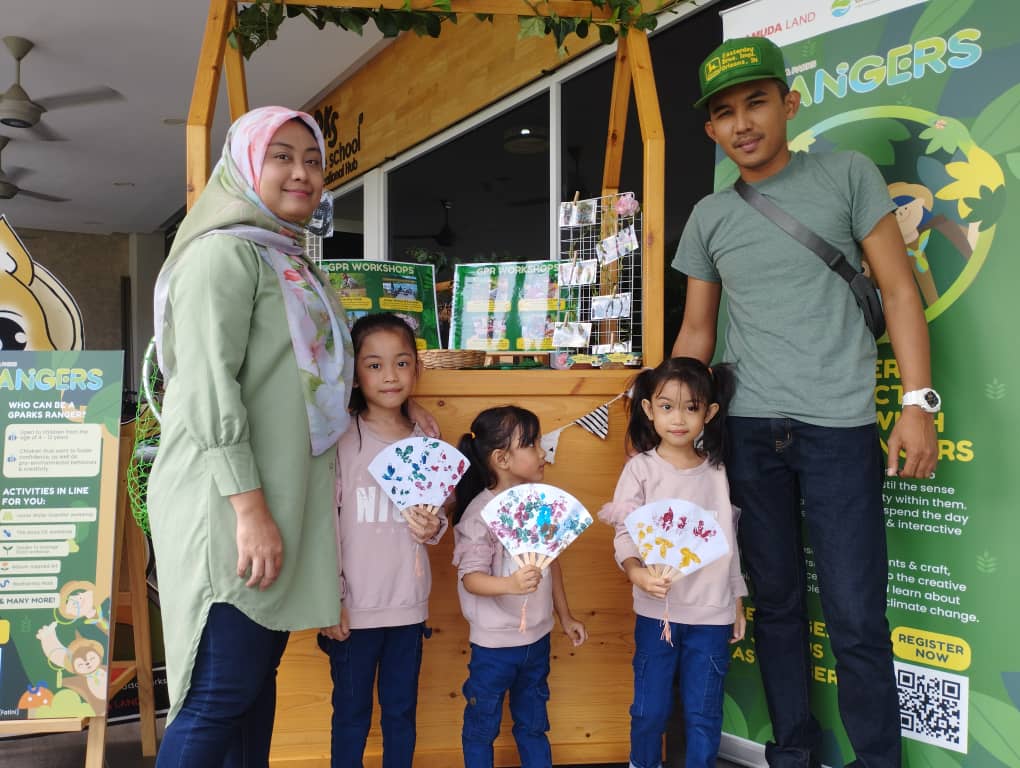
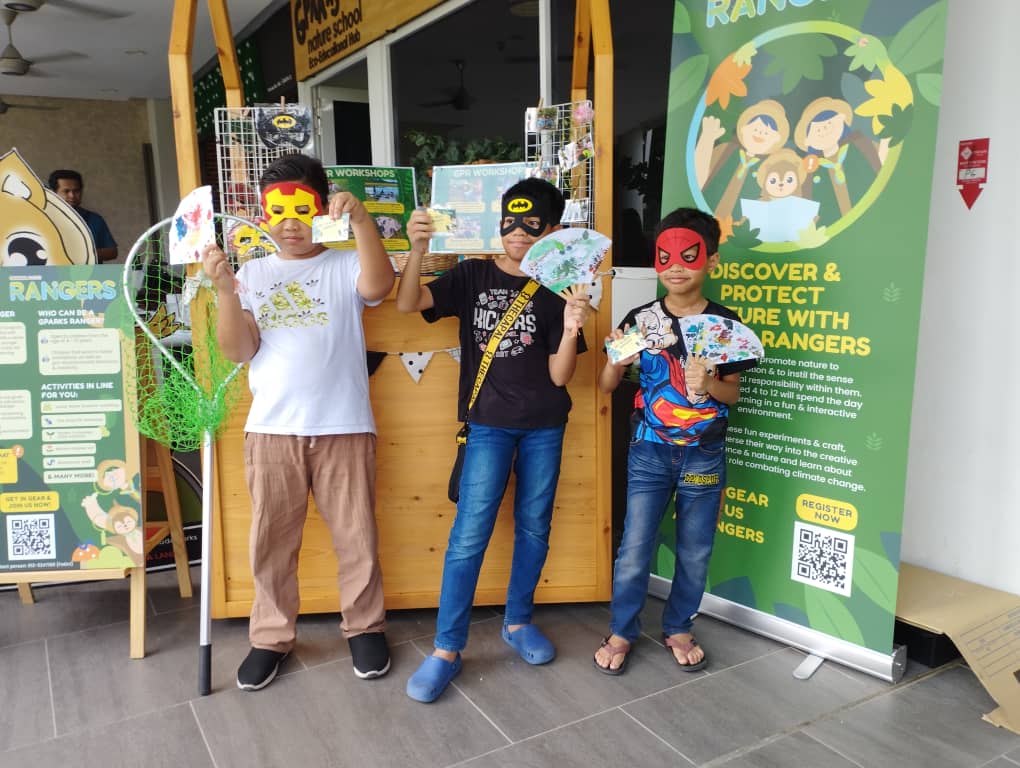
After the enjoyable workshop, they made a fan, which they decorated.
Hands-on creative activities can indirectly inspire children to think outside the box while also attempting to elicit their artistic side. These also depict how children and their parents can engage in do-it-yourself activities at home by utilising materials found in their surroundings that can be transformed into something meaningful. For example, to make this hand fan, we could use ice cream sticks, paper, and dry leaves that we can find anywhere.
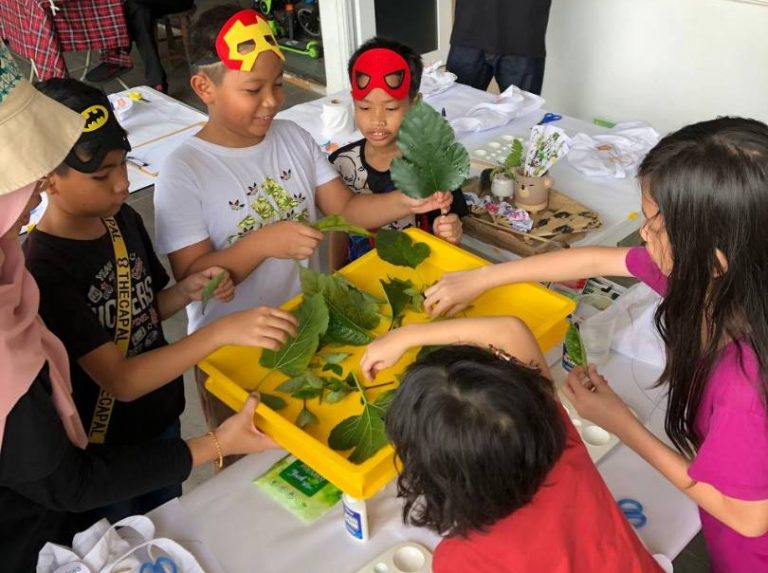
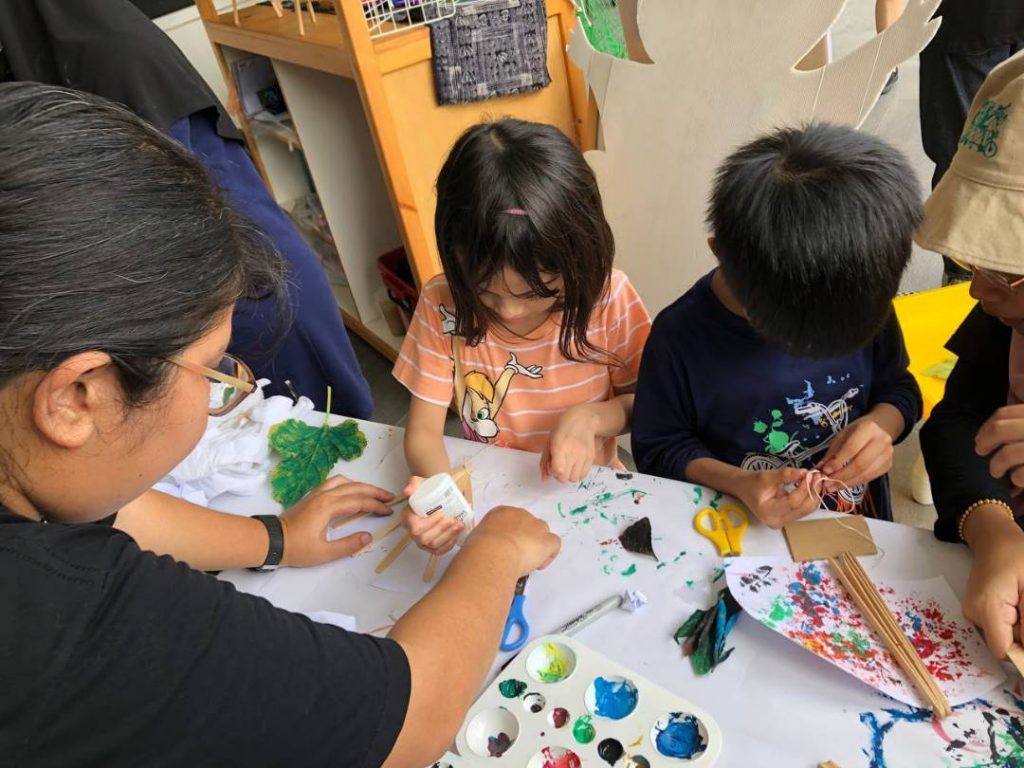
The children were busy selecting leaves and experimenting with colours.
Utilizing Adventurer Activities to Foster Science Interest
Continuing to pump up the pace, on February 19th, another workshop took place — the Junior Water Scientist, which was held at Gamuda Cove with 23 Junior Rangers. They had a wonderful opportunity to explore the water body through three different activities with a water education theme: biodiversity observation of the water body, water quality test, and DIY water filtration model. These modules are designed to stimulate their basic senses of vision, touch, and hearing, thereby improving memory retention, attention, and focus. Couldn’t deny that the kids’ excitement and joy can’t be constrained by the fact that they were permitted to play around on the lake’s bank while being supervised by their parents. Mainly when they were delighted enough to catch fish with the provided net during the biodiversity observation and collect water in preparation for the next activity.
Overall, this session was extremely beneficial for the children, who were exposed for the first time to a body of water and its ecosystem. They learned many important and entertaining facts about the various species that live in the water, as well as how to filter water at home with their parents.
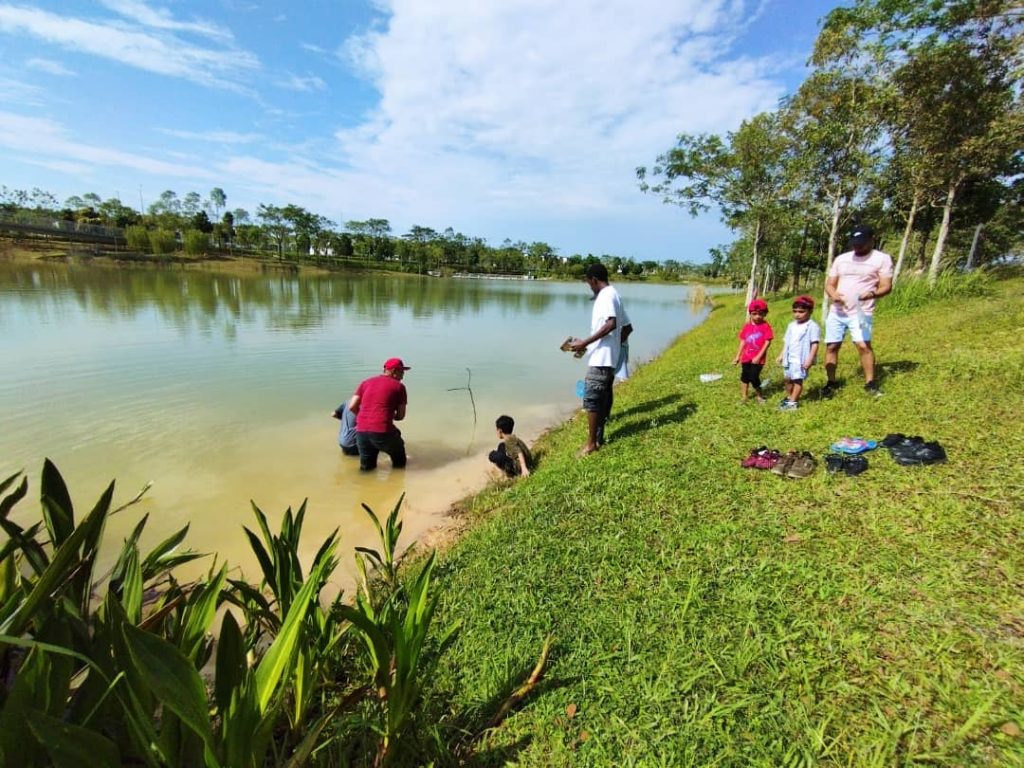
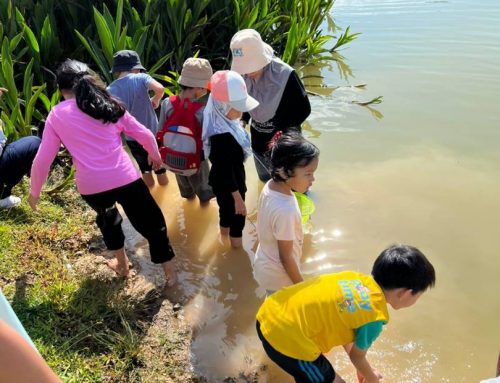
During the biodiversity observation activity, little heroic Rangers were going to the nearest lake’s bank to do some mini-exploration.
The water quality test was the highlight of the day. Most of the parents commented that this was the most difficult activity of the day. This is because they had to conduct mini-experiments to determine the quality of the water they collected from the lake itself, which indirectly activated their analytical skills. The water quality test was divided into two parts: water pH testing (using litmus paper to determine the level of alkalinity or acidity in the water) and DIY water filtration. Despite the fact that it was a difficult session to understand, the children were able to grasp the fundamental concepts and apply their knowledge throughout the session, which was the most important part.
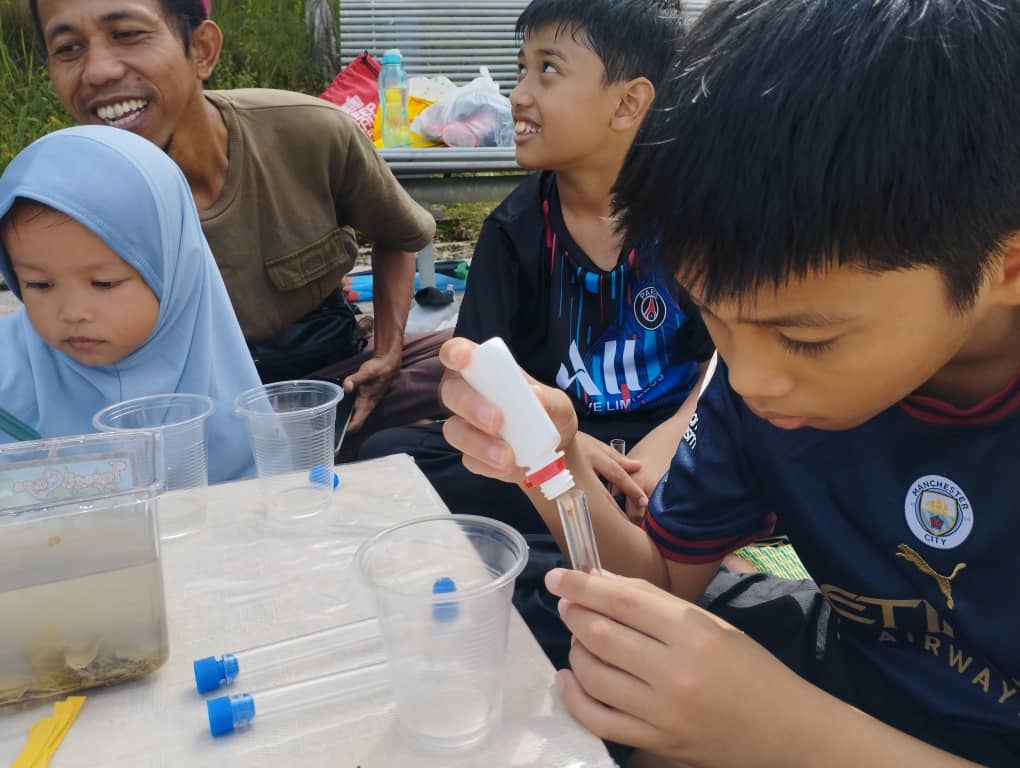
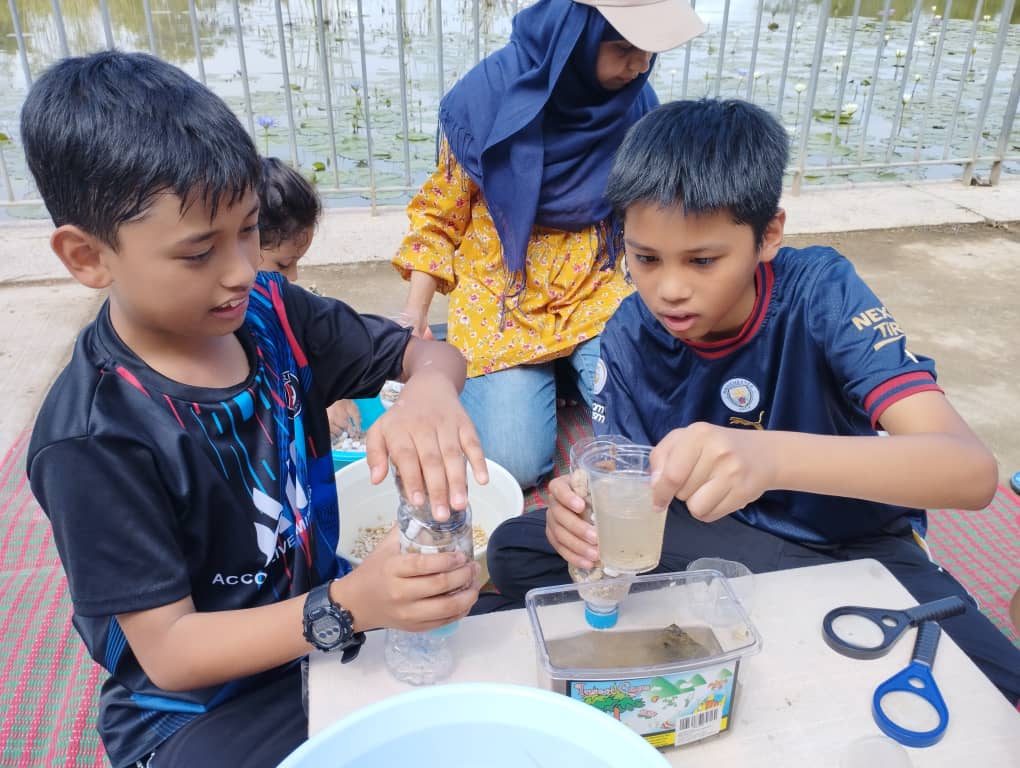
Sharp and focused, these two siblings collaborated and took their exercise seriously.
Application of Edutourism to Understand Mangrove Ecosystem
Buckled up everyone, we still have another third workshop incoming, which is — The Mangrove Nature Trip!
This ‘short nature trip’ was the third workshop held at Sijangkang Mangrove Recreational Park – so far our furthest journey that we brought our Junior Rangers — on the 18th March 2023. With a guidebook in hand, 25 Rangers are ready to begin their little adventure into the deep lush green of the mangrove ecosystem!
The first activity was a sharing session on the mangrove life cycle, during which the Rangers learned about mangroves, their lifecycle, biological roles, and their importance to the environment. After a few minutes, the children explored and observed the lush greenery of the thousands of mangrove trees that grew taller than them. With binoculars in hand, the children were able to spot a variety of fauna, including little brown crabs (which were shy and played peek-a-boo with the children) and mudskippers. Finding the crabs was a fun challenge for the kids because they are small and difficult to spot, and their colour blends in with the background! Not to mention that collecting leaves from mangrove trees is one of the ways the children can have fun while learning about the mangrove tree structure that they used in their drawing.
To be able to escape into the mangrove park during the weekend is a wonderful experience for both children and parents. Also, by doing engagement activities that help to introduce the edutainment learning concept to the local community, we can support local mangrove parks such as Sijangkang Mangrove Recreational Park. For the benefit of the readers, Sijangkang Mangrove Recreational Park is run by local elders from the Sijangkang community, who mostly volunteer to keep this place running and the mangrove rehabilitation initiative going.
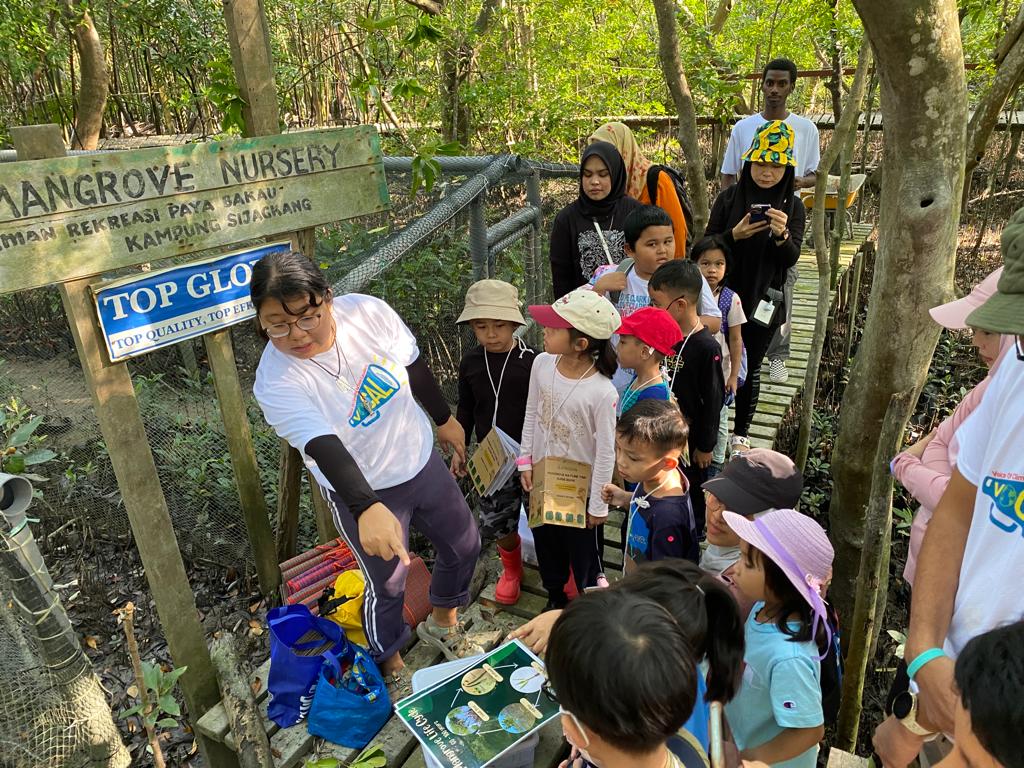
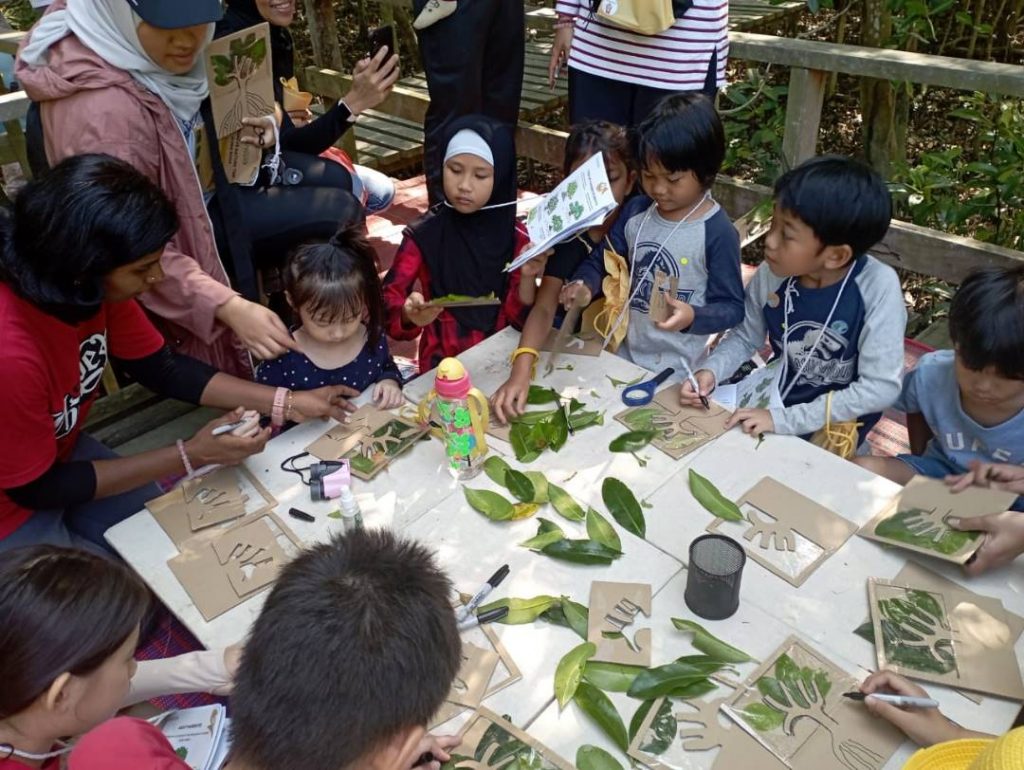
During the Mangrove Nature Trip, the Rangers participated in a variety of hands-on activities.
Nurturing Early Nature Engagement in Your Local Community Spaces
And now, our workshop recently took place at the heart of the Taman Tun Dr. Ismail itself, which is TTDI Edible Community Garden on 25 March 2023. Two garden-theme activities were delivered in this workshop — Garden Day Out — which is composting and a DIY botany postcard activity. The former served as an introduction to the kids to the importance of managing waste properly. This composting activity also shows something that might seem valueless can be turned into important stuff. Having all the equipment ready, the Rangers were focused on listening to the facilitator’s explanation and then putting the composting stuff layer by layer according to what had been instructed.
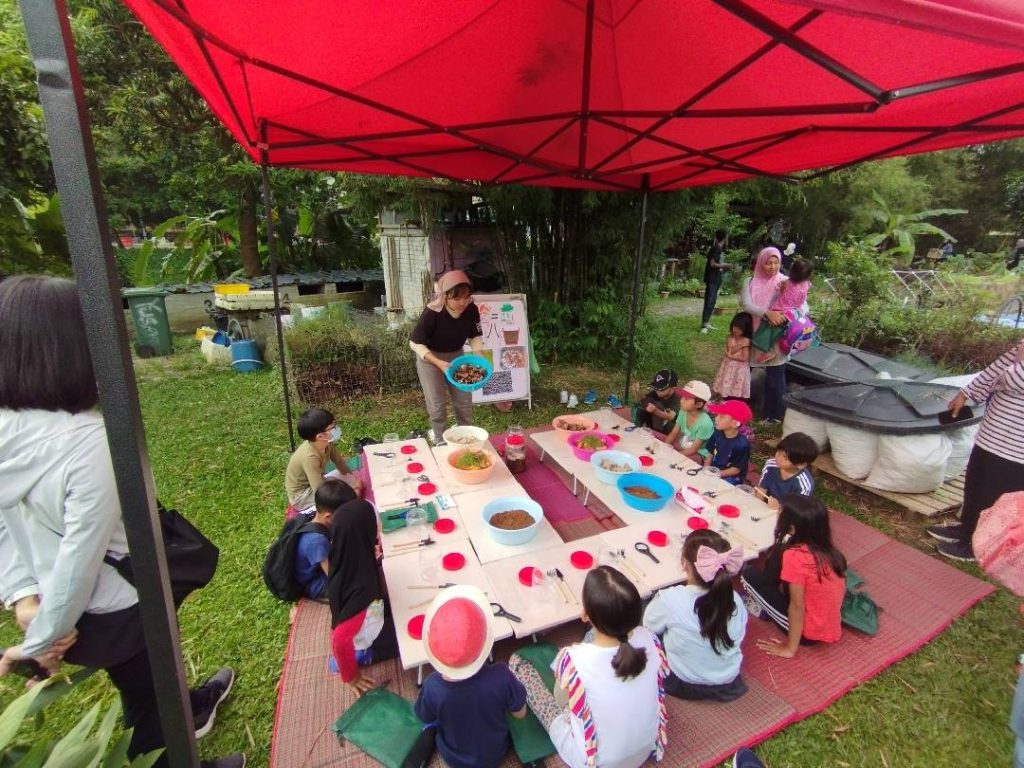
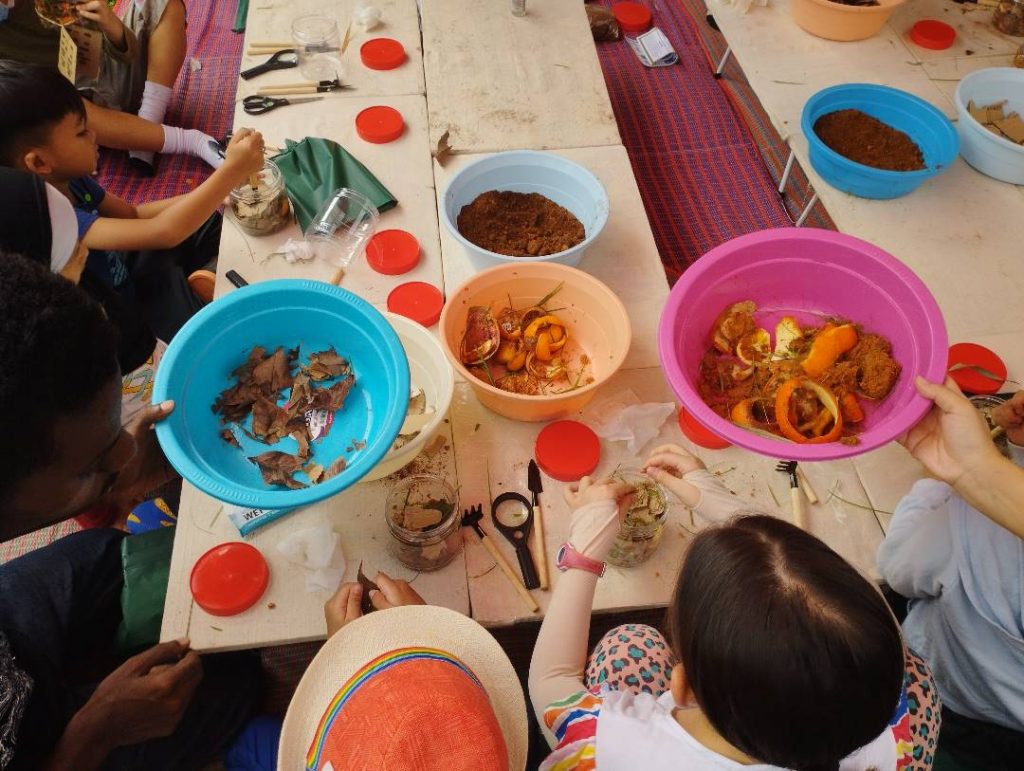
The Rangers were busy arranging the green and brown material for the compost
The DIY Botany Postcard was the next activity on the agenda! Before the activity began, EcoKnights facilitators introduced the little Rangers to the interesting shapes and colours of various leaves and flowers, which they later hand-picked to be part of the DIY postcard making. This is where the fun begins, as we could see them experimenting with various shapes of leaves and flowers while the facilitators shared a few facts along the way.
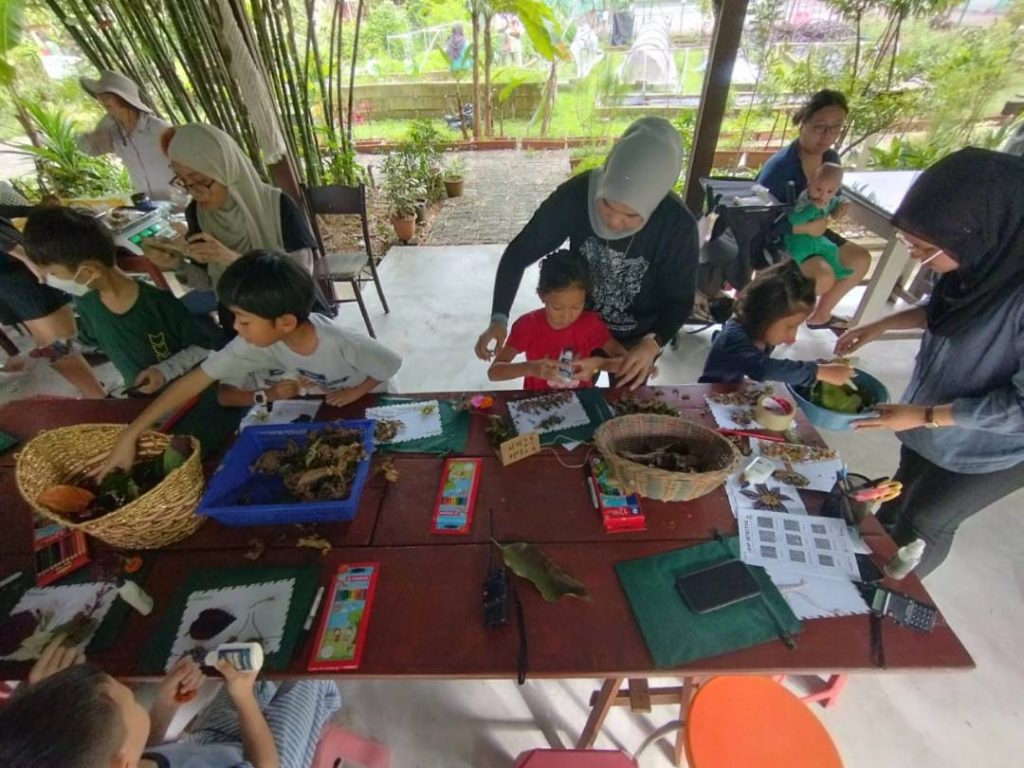
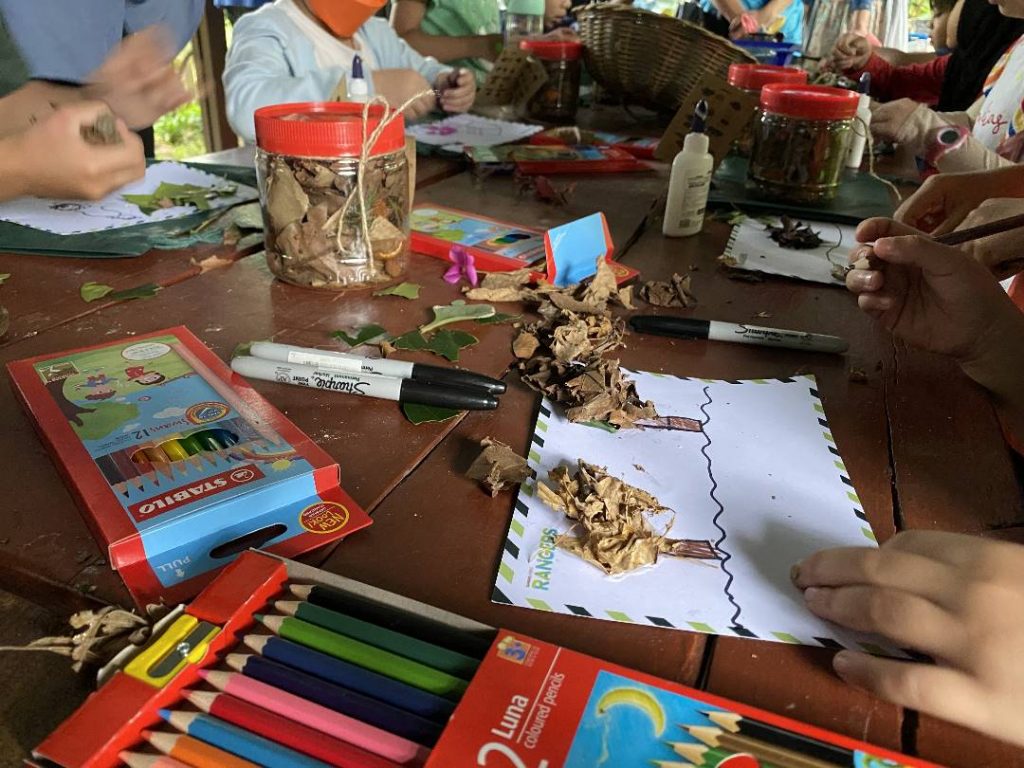
Dry leaves, colour pencils, and glue were fully utilised by 23 Rangers for the DIY botany postcard
The session ended with heavy rain, which most of the children took advantage of by playing in it!
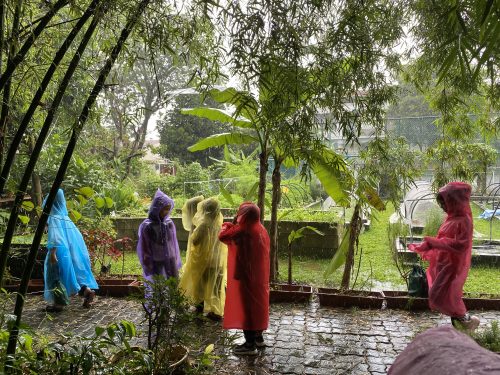
We believe that our children are the hope for the future generation. That’s why it’s important to instill good values in them at an early age. Gamuda Parks Ranger is one of our commitments in fulfilling this mission so that our younger generation can be the responsible person who can start their voyage to saving the Earth! Hence, this particular initiative is still ongoing until mid-year 2023. So, what are you waiting for? Let’s get your children to hop on our little fun adventure to learn more about environmental biodiversity by registering them as a Ranger through this link: http://bit.ly/GPR2023! You’ll be notified via email as well as our social media regarding the upcoming workshops. Together, we can encourage future generations to appreciate and understand more about nature and biodiversity!
Related posts:
- Salam Syawal Aidilfitri, Maaf Zahir dan Batin
- Epson Champions Sustainable Business Practices with Heat-Free Technology
- [FOR IMMEDIATE RELEASE] First playground surface built using recycled shoes unveiled in Malaysia
- Our First Tree for Us (T4Us) Planting and Giveaway of the Year Concludes, Supported by Davines
Share this content
